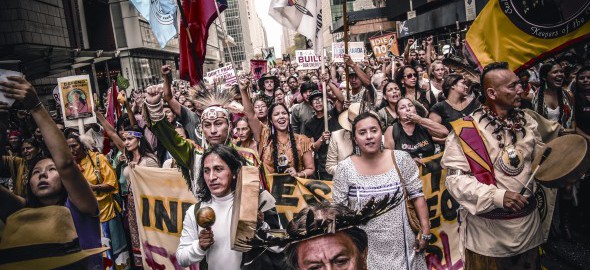Big Oil’s days are numbered – but the industry could still take us all down with it. From divestment to disruption, Jess Worth explores how the transition to an oil-free future is being hastened.

In September 2014, the $860 million Rockefeller Foundation made an historic announcement. Timed to coincide with massive marches for climate action all over the world, the fund revealed it was going to divest from fossil fuels. Following in the footsteps of the World Council of Churches, the British Medical Association and Stanford University, the latest major institution to make such an announcement is also the most symbolic. Because the Rockefeller fortune owes its very existence to oil.
The Rockefeller story is also the story of the rise and fall of the first ‘oil major’. Standard Oil, founded by John D Rockefeller in 1870, soon came to control the burgeoning US oil industry, from extraction to refining to transportation to retail.
It built an unprecedented monopoly that ultimately became so publicly despised that the US government stepped in and broke it up – birthing Exxon, Mobil and Chevron, among others. But by then, Standard had already set the Western world on a path to oil dependence that we are still shackled to, chain-gang-style, today.
The forced break-up created the Rockefeller millions. A century later, those millions are being used to make a dramatic point: we are witnessing the beginning of the end of the oil age.
Read more: New Internationalist
